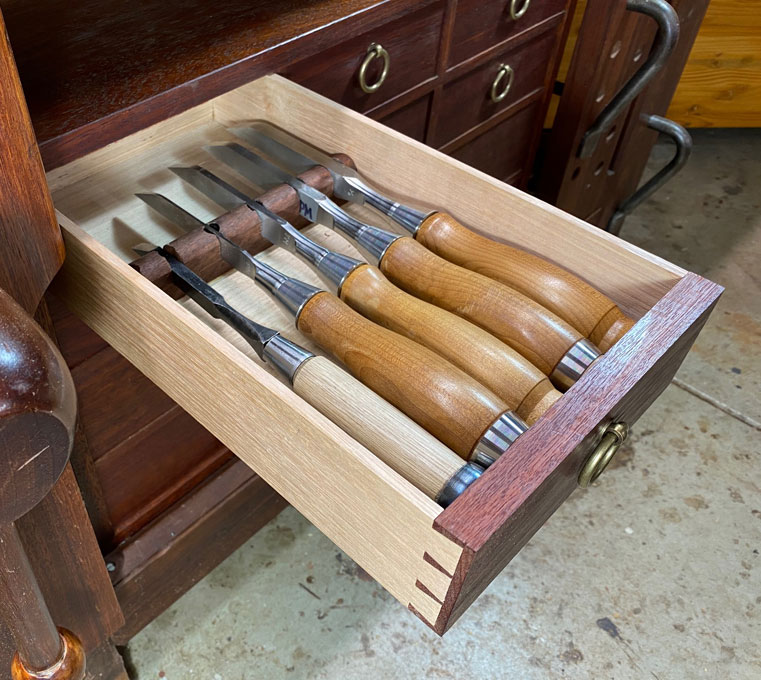I spent many years making mortises with all sorts of chisels, starting with B.E. chisels, the only type of chisel I owned in my first dozen years of woodworking & really not the best tool for the job by a long shot! My tenons always required 4 shoulders to hide the pinch marks from the backs of the chisels.
Eventually, I discovered good old firmer chisels were common in just about every "antique" store at the time, not at all expensive, and a big improvement for mortising. Around that time I also acquired a couple of "pigstickers" & thought I was about to enter mortising Nirvana. Not so - either from native stupidity or because I was too used to the firmer style, we just didn't get on & I ended up sticking firmly with firmers. Not long before I retired, when my income was at its peak, I splurged on a set of Lie-Nielsen mortising chisels - noice, but the improvement compared with my faithful old Titan firmers is not great. As Derek pointed out, the sharp corners on brand-new chisels are handy for shearing sides clean (but can also do a number on careless hands & fingers!), so they do make life a bit easier.
IMO, chopping straight, clean mortises is one of the more difficult skills to acquire in w'working, no matter what chisels you use. I tell beginners it's easier to cut perfect dovetails than perfect mortises. They don't believe me at first, but do after their first door or two comes out looking like something designed by Escher. The cyber & print world is full of "how tos" & aids to ensure the chisel is being held straight. Follow whichever one appeals to you, but the best method of all is simply practice - if you persist long enough, "muscle-memory" will eventually happen.
And yep, the two sizes that get used far & away the most in typical cabinetry I do are the 3/8" & 1/4" (or 9 & 6mm if you prefer metric sizes). If you set very small mortise locks in small cabinet doors & boxes, you may need a 1/8", and that's about it. One of the few times you'll need a 1/2" or larger is to build your workbench, so unless you are planning to take up heavy timber-framing, just use a firmer for the very occasional large mortise you'll need to make...

Cheers,


































